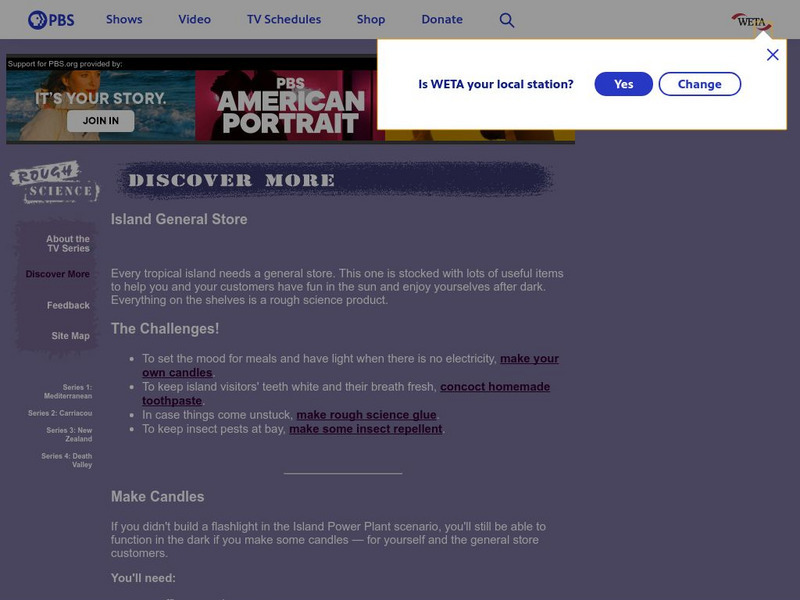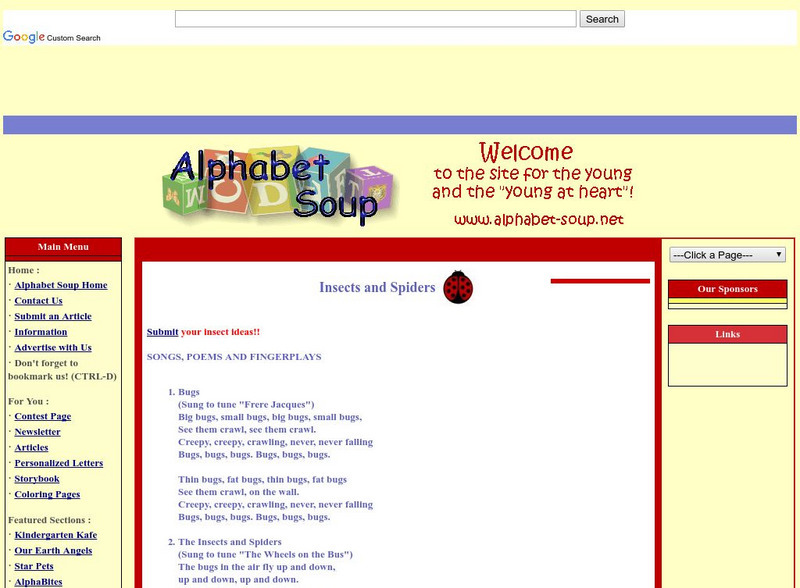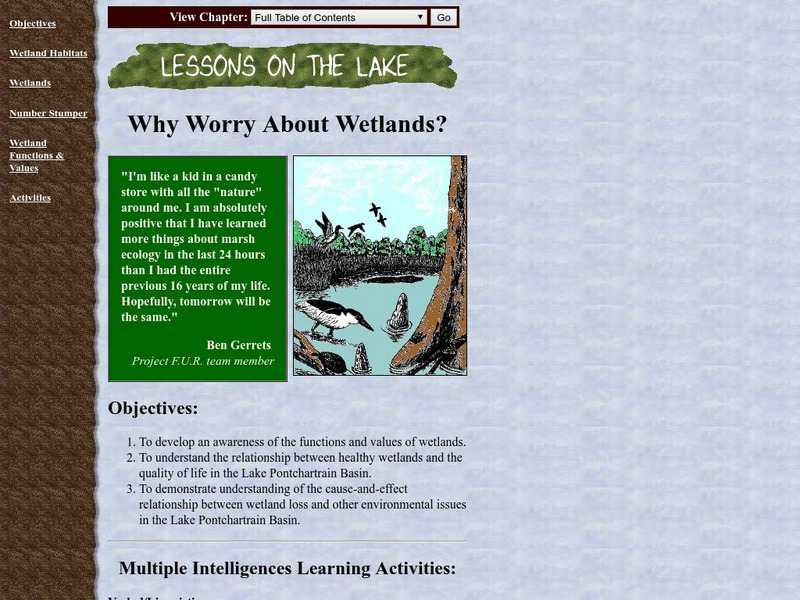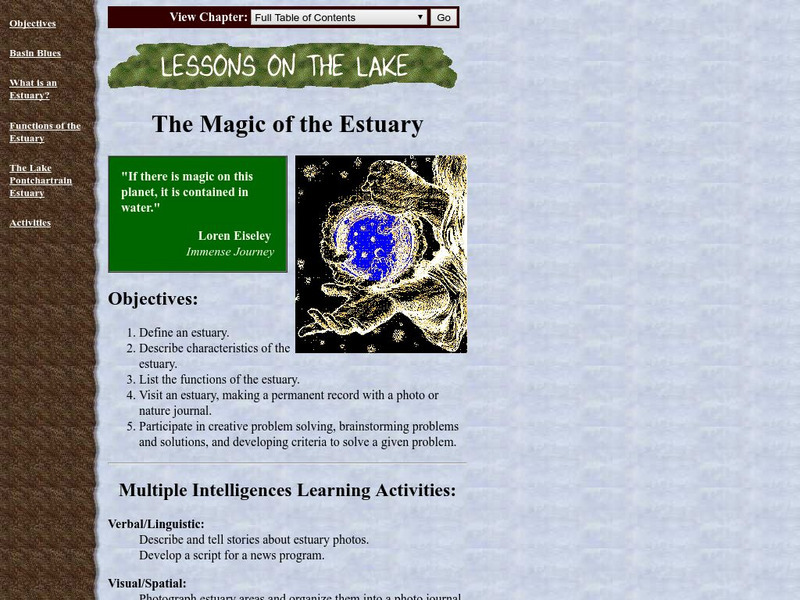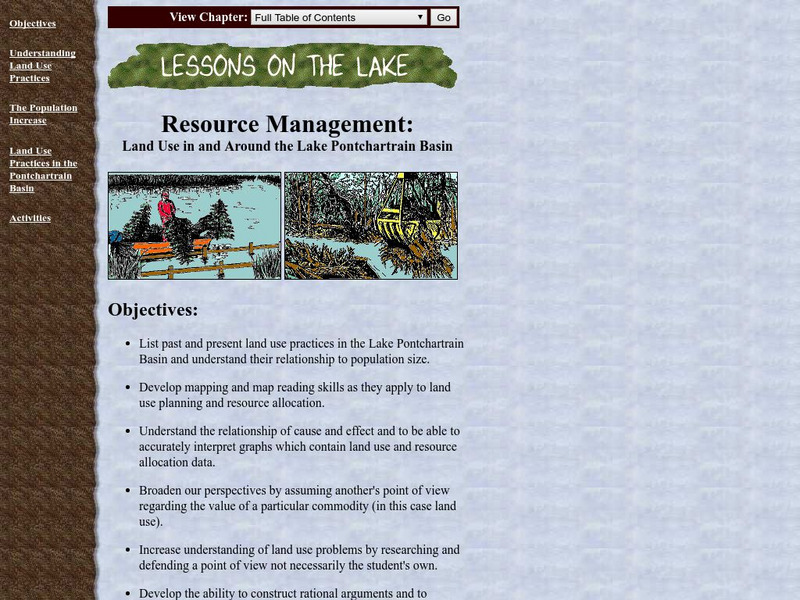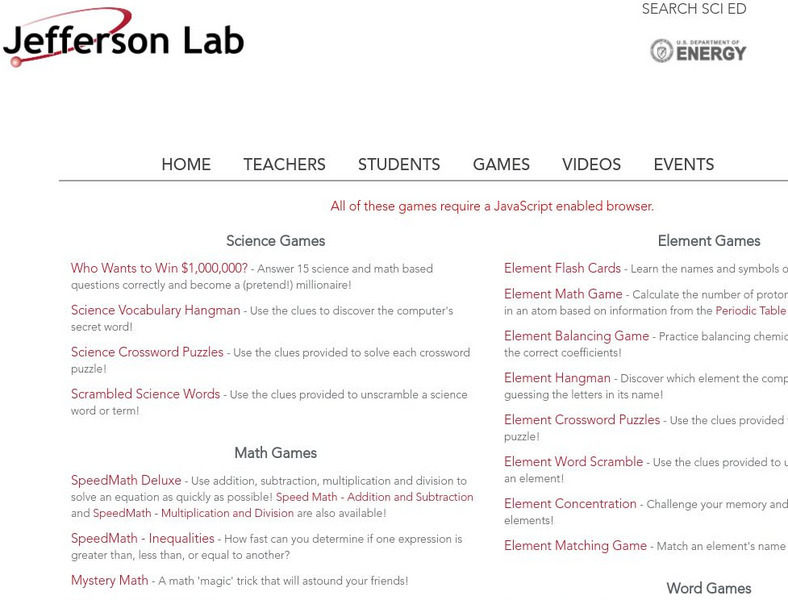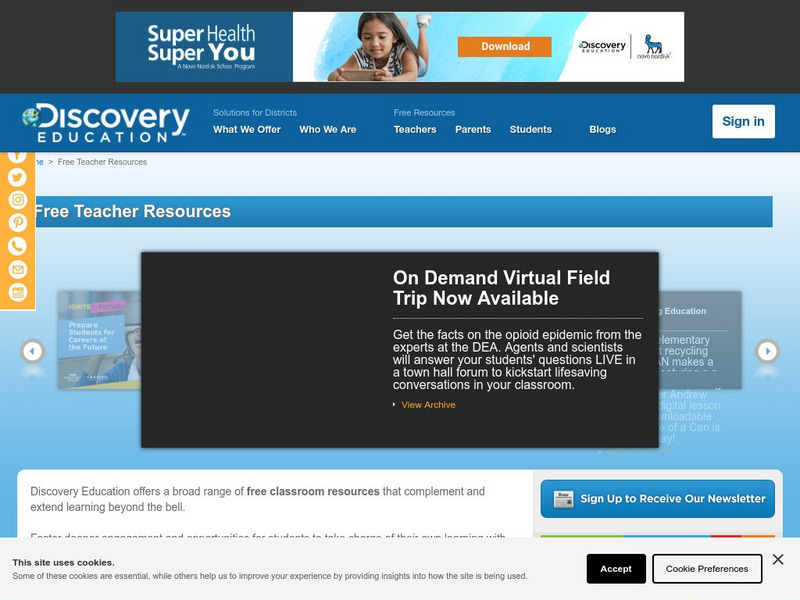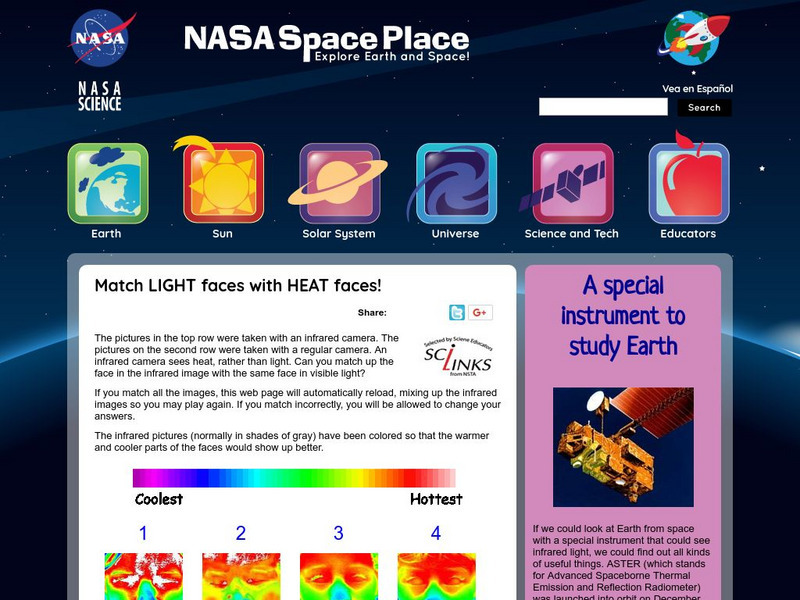PBS
Pbs Kids: Dragonfly Tv: Know How? Carrying Water
How can you carry 100 pounds of water easily? Is it possible? PBS site invites you to come along with Michael and Joel as they attempt to answer this question.
PBS
Pbs: Rough Science Island Observatory
PBS site asks users to imagine that they are stranded on a tropical island. Provides experiments for users to calculate time at night and to identify what is in the night sky.
PBS
Pbs: Rough Science: Island General Store
PBS site asks users to imagine that they are stranded on a tropical island far away from any modern day conveniences. Provides experiments for users to learn how to make candles, glue, insect repellent and toothpaste.
Other
Alphabet soup.com: Insects and Spiders
An extensive list of activities, songs, poems, and fingerplays are listed by alphabet-soup.com. Additional recipes, art projects, and literature connections are also included.
US Geological Survey
Lake Pontchartrain Basin Foundation: Watershed
Explore the characteristics of a watershed through these multiple intelligences learning activities. Activities will help students define a watershed as well as read the features on a topographic map. Site also includes background...
US Geological Survey
Lake Pontchartrain Basin Foundation: Why Worry About Wetland?
Help students understand the functions and values of wetlands through these multiple intelligences learning activities. The site also includes information about the wetland habitats, commercial values, water quality, and erosion control.
US Geological Survey
Lake Pontchartrain Basin Foundation: The Magic of the Estuary
A collection of multiple intelligences learning activities about the characteristics and functions of an estuary. The site also includes basic information about an estuary along with facts about the Lake Pontchartrain estuary.
US Geological Survey
Lake Pontchartrain Basin Foundation: Ecosystems in Delicate Balance
Learning activities to investigate how organisms interact in a functioning ecosystem. Students will explore the role organisms play in food chains and preserving biodiversity in ecosystems. Lake Pontchartrain Basin ecosystem is featured...
US Geological Survey
Lake Pontchartrain Basin Foundation: The Forces Are With Us: Natural Forces
A collection of science activities that focus on natural forces that affect Lake Pontchartrain Basin. Students will understand how global climate change relates to storm events, subsidence, and erosion. Background information on...
US Geological Survey
Lake Pontchartrain Basin Foundation: Resource Management
A variety of activities to show students how population size relates to how land is used in the Lake Pontchartrain Basin. Activities provide opportunities for students to interpret graphs, read maps, research problems, defend a side, and...
National Health Museum
Access Excellence: The Blackout Syndrome
Become a medical investigator trying to solve the cause of a mysterious disease. Through a four-part mystery series, students try to figure out the source of the disease and how to treat it. By reading clues students make predictions and...
Thomas Jefferson National Accelerator Facility
Jefferson Lab: Games & Puzzles
A great place to reinforce topics covered in a fun way. Science, math, and more, specifically element games for all levels.
Other
Switch Zoo: Make New Animals
At this site users are able to pick an animal and create funny looking animals by switching the tails and heads with those of other animals. Also offers links to lesson plans, animal drawings, animal poems and animal stories.
Other
Lunar and Planetary Institute: Make a Comet
Hands-on activity allows children to learn about comets by creating their own models using art supplies.
Discovery Education
Discovery Education: Dynamic Earth, Tsunami
Use this site to teach your learners what a tidal wave or tsunami is from this lesson plan. The discovery activity shows how a tsunami happens.
NASA
Nasa: The Space Place: Match Light Faces With Heat Faces
This site from the National Aeronautics and Space Administration provides information on the subject. "An infrared camera sees heat, rather than light. Can you match up the face in the infrared image with the same face in visible light?"
PBS
Pbs: Rough Science: Island Power Plant
Learn how to create electricity and your own electrical gadgets! Site provides users with information on how to make a battery, flashlight, buzzer an electric motor.
Other
Whale Net: Teacher Resources
Site consists of a page of links helpful to any teacher desiring to do an interdisciplinary unit on whales.
PBS
Pbs Kids: Dragonfly Tv Science Fair: Plan
So, you've chosen your topic and done your research, now, you need to plan your investigation. PBS site walks you through some steps to help guide you through the planning process.
PBS
Pbs Kids: Dragonfly Tv: The Show: Exercise and Memory
Can exercise really help our brain work better? This PBS site discovers if this is really true by taking you into the worlds of Jada and Maurna to find out.
PBS
Pbs Kids: Conduction Countdown
PBS offers an experiment that kids can do at home to learn more about heat conduction and how it works.
PBS
Pbs Kids:activities and Videos: Structures
PBS site provides videos and activities are hands-on challenges that focus on the engineering design process. They use simple materials, allow for multiple solutions, and are ideal for ages 9-12.
Science Bob Pflugfelder
Science Bob: Make Plastic Milk
Science Bob gives instructions on how to make plastic milk using common supplies with information on how it works.
Science Bob Pflugfelder
Science Bob: Try Some Lava in a Cup
Science Bob provides instructions for how to make some lava in a cup using common supplies with information on how it works.




